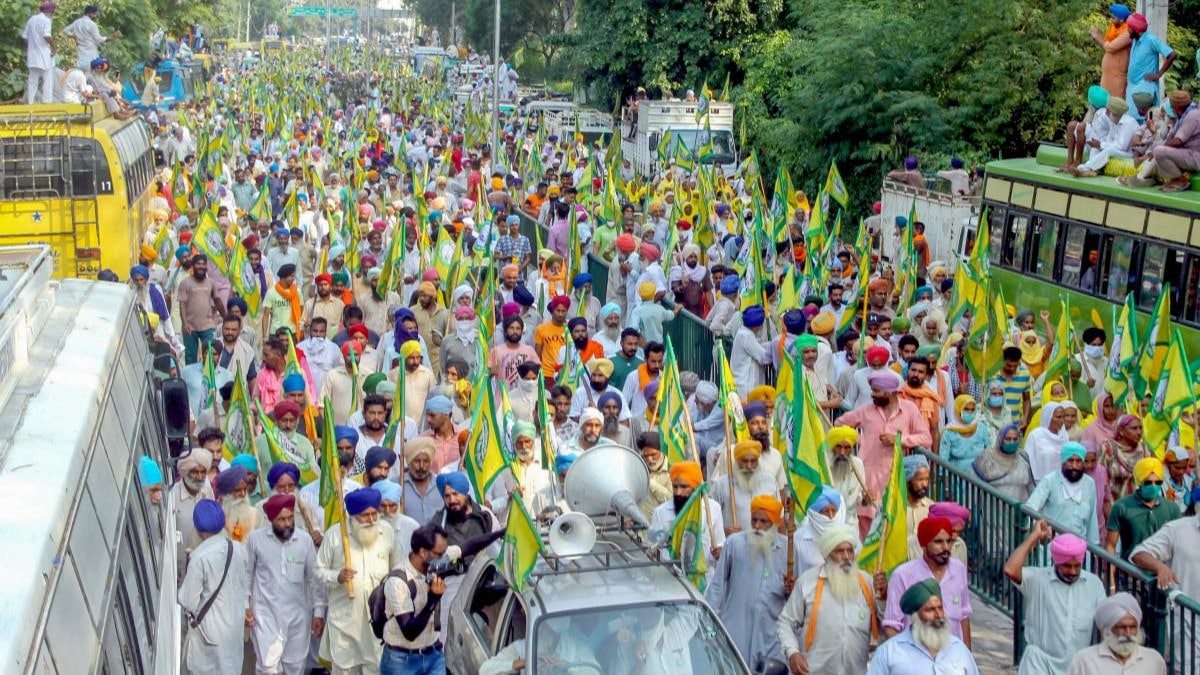The MSP System Till Now, Has Not Been A Part Of Any Law
The MSP system till now has not been a part of any law, Punjab has got the most benefit. The demands made by the farmers on the road to protest against the agricultural laws include legalizing the MSP.
They are anticipating that if this does not happen then the MSP system will end. However, the reality is that the MSP system has not been a part of any law till now.
Punjab, where the tone of protest is outspoken, has gained the most from the MSP this year.
Ironically, only six percent of the big farmers are able to take advantage of the MSP for which the farmers are on the roads today.
The minimum support price is decided on the recommendation of CACP
The Central Government currently fixes MSPs for 23 types of commodities on the recommendations of the Commission for Agricultural Costs and Prices (CACP).
These include 7 grains, 5 pulses, 7 oilseeds and 4 cash crops. Actually, the CACP is not the only parliamentary recognized statutory body.
MSP was announced at the time of the Green Revolution in 1965. It started in the year 1966-67 with the purchase of wheat.
However, the CACP had suggested legislation in the Price Policy Report during the Kharif season in 2018-19.
There is a possibility of the end of the mandis, the basis of the farmer movement
Farmers feel that under the new agricultural laws, there will be buying and selling of crops outside the mandis and it will not be taxed.
At present, three percent RDF, three percent mandi fee and two and a half percent of the total work in mandis.
There was also a four percent purchase tax before the implementation of GST, which has now ended.
Mandis will end up in the absence of tax collection when the private sector purchases outside to save eight and a half percent tax.
While the MSP has not been legalized earlier, the provisions of the new law have raised doubts in the minds of the farmers that the government will gradually stop buying wheat and paddy.
However, the central government is assuring that the purchase will not be stopped.
But farmers feel that the Shanta Kumar Committee report based on which these laws are made includes recommendations to dissolve the FCI by dismantling the public distribution system.
If this happens, procurement in the mandis will also be closed.
The Mandi system is most effective in the state. It can be estimated from this that paddy comes from states like Bihar and Uttar Pradesh to be sold in the mandis of Punjab.
Due to this system, Punjab has set a record in paddy procurement this time.
So far, 2.04 million tonnes of food grains have been procured, while only 30 million tonnes of paddy has been procured in the entire country.
At the national level, when it comes to procurement at the minimum support price, Haryana stands first.
My crop-my-details web portal has been created by the state government, on which every grain of registered farmers is purchased.
A total of six crops in the state are being purchased on wheat, paddy, millet, mustard, moong, and cotton MSP.
However, in the mandis, the state government buys the crop of the same farmers on the MSP, who have registered the amount of land and crop on the portal.
After this, the option of registering farmers from outside states to sell their crops on the web portal is open.
Only after purchasing the entire crop of the farmers of Haryana, the crops of the registered farmers of other states are purchased.
Farmers are afraid that if the private sector gets permission to buy, then the mandis will gradually end and private companies will buy crops at arbitrary prices.
This is the reason why farmers are demanding a law on MSP, in which those who do not pay minimum support price should be punished




